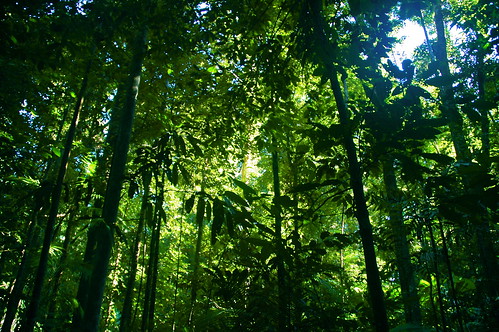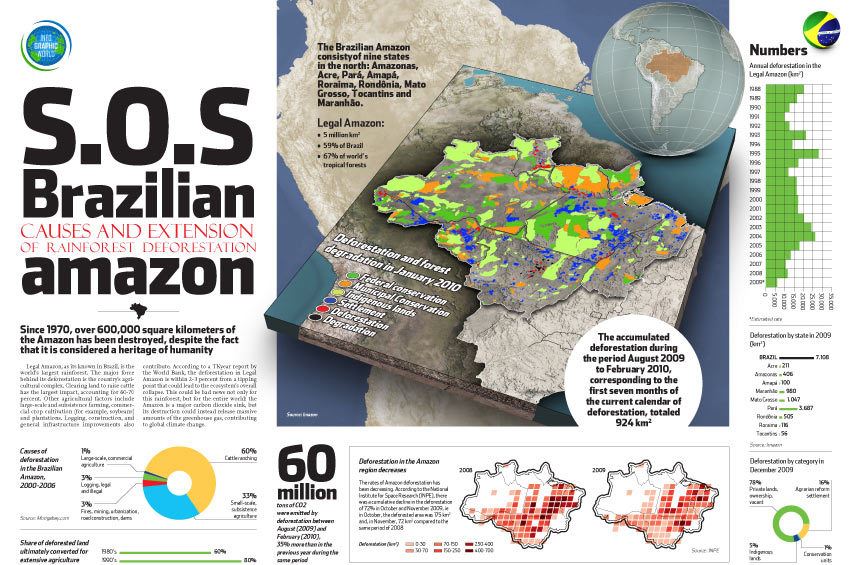Editor’s note: In Context is a new series designed to inform and educate you on Heifer’s work in each country we have a presence. Every two weeks we’ll tackle a different country and examine unique situations related to hunger and poverty, how Heifer works to address them as well as take some time to explore local culture and traditions.

The rainforests are still in trouble. By the time you finish reading this blog, about 200 football fields worth of rainforest will be torn down.
Once upon a time, rainforests covered 14% of the earth's surface. Today, they only cover 6% and scientists say that they'll be gone within the next 40 years.
The Amazon rainforest or the "Lungs of our Planet" covers over a billion acres and produces more than 20% of the world's oxygen. If it were a country it'd be the ninth largest in the world.

Almost half of the world's species of plants, animals and microorganisms are found in the rainforests. Experts estimate that we lose 137 plant, animal and insect species everyday-- that's 50,000 species a year. Bad news for the earth and for us humans because right now, at least 121 prescription drugs that are sold worldwide come from plant-derived sources. 25% of western medicines are derived from rainforest resources but less than 1% of these tropical tree and plant species have even been tested by scientists. Think of all the cures just waiting to be discovered and those that we'll never know about because of all the plant species that are extinct due to humans.
Experts agree that by leaving the rainforests intact and harvesting it's resources- fruits, nuts, oils and medicinal plants, it would provide more economic value than if we were to cut down the forests to make grazing land or for timber.
Click on the infographic below to learn more about the Amazon rainforest deforestation.

We can do our part in helping to save the rainforests by creating demand for sustainable rainforest products. We can all be part of the solution in saving one of the world's most precious natural resource.